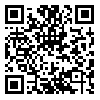BibTeX | RIS | EndNote | Medlars | ProCite | Reference Manager | RefWorks
Send citation to:
URL: http://jdisabilstud.org/article-1-2833-en.html
2- Assistant Professor, Department of Psychology, Ilam Branch, Islamic Azad University, Ilam, Iran
3- Assistant Professor, Department of Statistics, Ilam Branch, Islamic Azad University, Ilam, Iran
4- Assistant Professor, Department of Psychology, Islamic Azad University, Eslamabad Gharb Branch, Eslamabad Gharb, Iran
Abstract
Background & Objectives: The phenomenon of math disorders is an important educational problem. The expected incompetence in mathematics hinders academic performance or activities of daily living, and the resulting problems go beyond disorders related to any sensory or neurological impairment. The risk of expressive language and mixed language disorders is higher in children with math disorders than in other children, leading to anxiety and academic failure. On the other hand, one of the reasons for students' failure in various exams is high anxiety. They have been unable to regulate their emotions, and all of these factors ultimately lead to the lack of development of these children. As achievable capabilities, executive functions can affect the emotional self–regulation ability and control of test anxiety. This study aimed to investigate the effectiveness of executive function training in regulating excitement and test anxiety in female students with math learning disabilities.
Methods: The research method was quasi–experimental with a pretest–posttest design with a control group. The statistical population comprised all female students with learning disabilities referred to the Rehabilitation Training Center for Special Learning Disabilities in Islamabad Gharb City, Kermanshah Province, Iran, in 2019. They had learning disabilities in mathematics based on their counseling and psychological records. Their number was 112. Among the female students with math disorders, 30 eligible students were selected by available sampling method. Then, they were randomly assigned to the intervention and control groups. The inclusion criteria were being a girl, having normal intelligence, and having a math disorder. The exclusion criteria were low intelligence score, learning disability, and not attending all sessions. For collecting data, we used Iran Mathematical Test Key–Math (Mohammadesmaeil and Hooman 2002), the Affective Style Questionnaire (Hofmann and Kashdan, 2010), and Test Anxiety Inventory (Abolghasemi, 1996). The intervention group received "executive function training" for 10 weeks. During this period, the control group did not receive any intervention. After the end of the intervention, the relevant training course was held in the same center as the control group. The research data were analyzed with descriptive statistics (mean and standard deviation) and inferential statistics (independent t test, Fisher exact test, multivariate and univariate covariance analysis) at a significance level 0.05 in SPSS version 24.
Results: The results showed that executive functions training had a significant effect on improving emotional self–regulation ability (p<0.001) and reducing test anxiety (p=0.002) of students with math learning disabilities in the experimental group.
Conclusion: Teaching executive functions in schools is very effective in solving problems of emotional self–regulation ability and reducing test anxiety of students with math learning disabilities, and its use is recommended to teachers and school counselors.
| Rights and permissions | |
 |
This work is licensed under a Creative Commons Attribution-NonCommercial 4.0 International License. |




